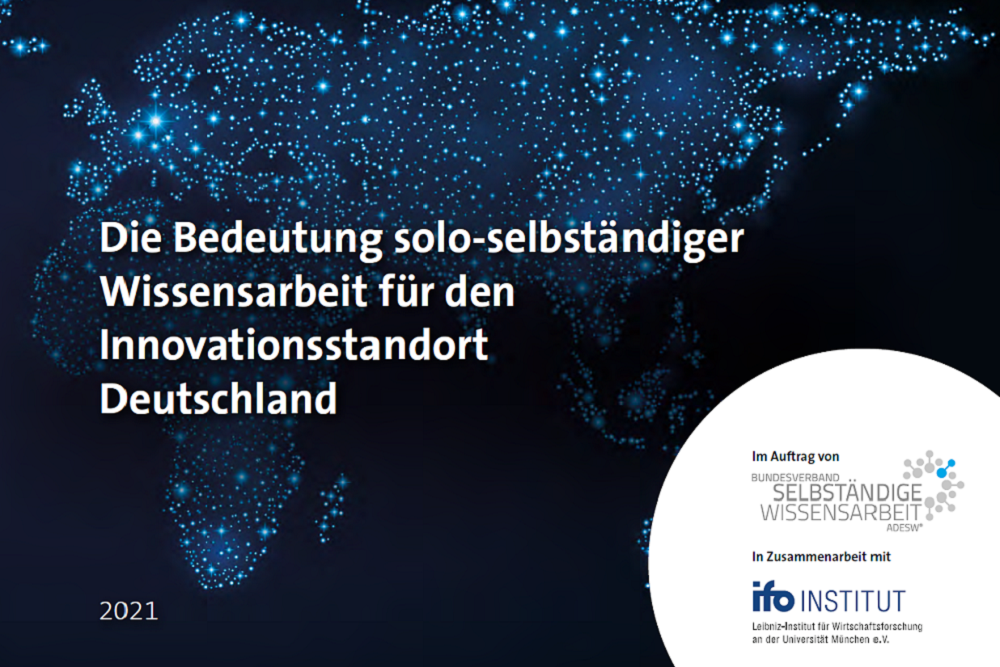
Clear correlation between economic growth and share of self-employed knowledge workers
The result is clear: The share of knowledge workers shows a significant positive correlation with the level of economic growth. Knowledge-intensive services (“KIS”) were taken into account, which include legal, tax and management consulting, architectural and engineering activities, advertising and market research, other professional, scientific and technical activities, IT services, financial and insurance services, education, health and social work, and arts, entertainment and recreation. “High-tech manufacturing” (HTM) was also considered. The positive correlation with economic growth is particularly significant in the high-tech and high-tech knowledge-intensive services sector, which includes IT services.
How does this positive effect come about? It is not just about the higher productivity of the individual self-employed knowledge worker, but also the productivity-increasing effect he or she has on others: By transferring knowledge to the commissioning company, developing new ideas through a more objective view of the challenges (no “operational blindness”), bringing in helpful contacts, prior knowledge and experience from projects in other companies, as well as sound specialized knowledge not available in the company.
Interestingly, the positive correlation with growth does not hold for all self-employed workers. When industries such as retail, restaurants, trades, transportation or agriculture are factored in, the correlation becomes slightly negative – one can only speculate here that larger companies have competitive advantages in these areas.
